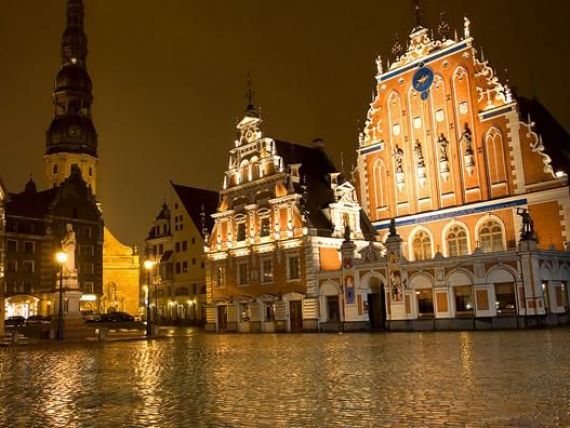The European Commission has decided that Latvia meets all the criteria for adopting the euro. Thus, early next year, it will become the 18th member of the euro area, notes the BBC.
EU leaders hope that the decision will demonstrate that the euro area can grow despite the crisis of the past three years.
The Baltic
state will start using the euro on 1 January 2014, after beeing
in terms of the Pre-Accession, the most important of which are low
inflation, low interest rates and long-term public debt reduced.
Latvian
government imposed one of the harshest austerity programs in Europe
after the financial crisis of 2008-2009, which reduced by 20% the
country's GDP.
Latvia's
accession to the euro area must be approved by EU leaders and the
European Parliament, but these approvals are considered formalities. Eurozone finance ministers will likely vote in July.
The
European Central Bank also approved Latvia's entry into the euro area
on Wednesday before the EC report, but warned that high levels of bank
deposits held by foreigners pose a risk to the financial stability of
the country.
Latvia's
inflation recorded during the pre-accession period was 1.3%, well below
the benchmark of 2.7% and the country's budget deficit fell last year
to 1.2% of GDP, well below the ceiling 3% of GDP required by the EU.
Public debt was 40.7% of GDP, well below the maximum of 60% of GDP required for adoption of the euro.
The
costs of long-term financing of State in the pre must not exceed by
more than 2 percentage points the average of the three EU countries with
the lowest inflation rates, the same countries used if the criterion on
price stability.
The
average yield on long term government bonds Latvia in the 12 months
ended in April was 3.8%, well below the benchmark of 5.5%. Exchange rate mechanism ERM-2 also provides for exchange rate stability against the euro for two years.
The
euro area was established on January 1st, 1999, with the initial 11 Member
States: Austria, Belgium, Finland, France, Germany, Ireland, Italy,
Luxembourg, Netherlands, Portugal and Spain. Greece joined in 2001, followed by Slovenia in 2007, Cyprus and Malta a year later, Slovakia in 2009 and Estonia in 2011.

0 comentarii:
Trimiteți un comentariu